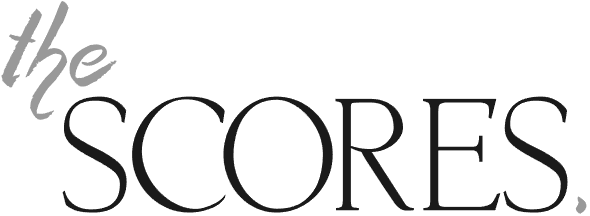Letter to a Young Poet
I’ve been asked, badgered, into writing a ‘letter to a young poet’. I think I’m supposed to be making ‘gee-up!’ noises or offering a pep-talk. There was a wee boy on the radio this morning. His teacher had hit on the brilliant idea of bringing a friendly dog into the classroom, and having the child read aloud, alone, to the dog. The wee boy was a hesitant speaker and we assume, a hesitant reader. He said: ‘I like it much better, reading to the dog. The dog never says ‘Come on, you can do it!’
I’m not going to say: C’mon! You can do it!
When I was young, writing felt like a door I’d been leaning on had suddenly been unbolted from within, sending me stumbling into a vast room. Not a room, a world.
It’s hard to remember now, how that was. Life before art.
Cy Twombly said his hope was ‘to celebrate a world that lies spread out around us like a bewildering and stupendous dream’. (Painter – look him up.)
Stanley Spencer said he was ‘determined not to see the world except in wonderment’. (Painter – look him up.)
*
There are questions I have never been able to answer, because they are reductive questions:
Do you consider yourself a woman writer, or a Scottish writer?
Do you write for other people, or just for yourself?
What does that mean: ‘just for yourself’? What is a ‘self’? Now where is the stupendous dream?
To an extent we are all constructs, made of our cultures and backgrounds. It’s brave to write from a certain identity, to write for your people, especially if they have been ignored or derided. To be a woman writer or a black writer or a trans writer, or a working class writer or one of the many other groups which has been silenced. To be a ‘voice’ and speak out of, and for those people who give you your being-in-the-world – that’s a brave and political act.
But sometimes you don’t need an audience or a tribe, with all their expectations and encouragements weighing you down. Or your own expectations! A friendly dog might be better, who just likes your company. But eventually you’ll want to get good and publish, and why not?
It’s also brave to choose NOT to speak out of your ‘identity’, though it can feel like you’re letting the side down. It’s ok not to be a ‘voice’. It’s ok to watch the shadows playing on the wall, or listen to the west wind, and quietly bring them into a poem for their own sake. It’s a Paleolithic eye that’s doing the watching, after all, evolved of the deep ongoing human journey. An ancient listening ear which is also your own. How you see and listen is part of your own self.
I hereby vow, never to forget when I am writing…to go inside myself. (Rosa Luxemburg, revolutionary socialist – look her up.)
*
‘Their [artists’] essential effort is to catapult themselves wholly, without holding back one bit, into a course of action without having any idea where they will end up. They are like riders who gallop into the night, eagerly leaning on the horse’s neck, peering into a blinding rain. And they have to do it over and over again.’ (Anne Truitt, sculptor – look her up.)
Maybe all writing is brave and sometimes difficult, and sometimes foolhardy,
as is all art, as is reading, as is politics, as is all being-in-the-world.
C’mon, you can do it.
by Kathleen Jamie
Kathleen Jamie is a poet, essayist, and travel writer. Author of of numerous collections of poetry, including The Bonniest Company (Picador, 2015), Waterlight: Selected Poems (2007), and The Tree House (2004), which won the Forward Prize for best poetry collection of the year, and a Scottish Arts Council Book of the Year Award. Her creative nonfiction includes The Golden Peak: Travels in North Pakistan (1992), and her collection of essays, Sightlines (2013), won the Orion Book Award. In 2011, she became Professor of Poetry at the University of Stirling.
